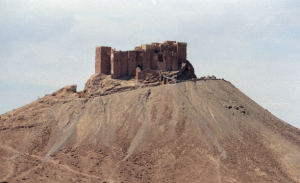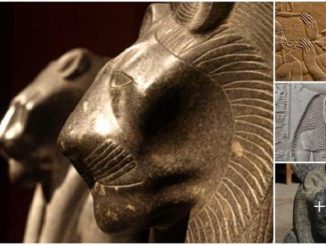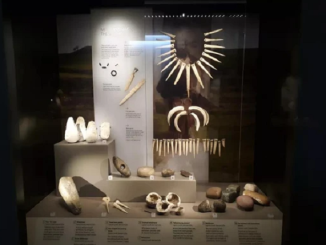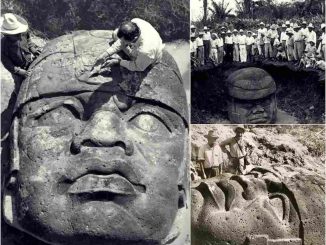Overlooking the Sands of History
Perched atop a commanding hill in the province of Homs, Syria, the Palmyra Castle, also known as Fakhr-al-Din al-Ma’ani Castle, is a monument that whispers tales of a bygone era. Thought to have been constructed by the Mamluks in the 13th century, this fortress overlooks the ancient ruins of Palmyra, offering a silent testament to the layers of history that have unfolded below. This blog post embarks on a journey through time, exploring the significance of this architectural marvel and its role in the historic tapestry of the Middle East.
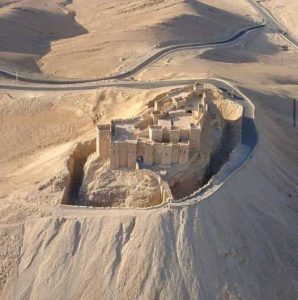
The Castle’s Strategic Importance
The Palmyra Castle’s strategic location on a high hill provided unparalleled views of the Syrian Desert and the ancient city of Palmyra, making it a crucial point of defense throughout history. Its walls have witnessed the rise and fall of empires, standing firm as a guardian of the past. The images accompanying this post capture the castle’s imposing presence, inviting readers to glimpse the panoramic views that have made this site a prized possession for conquerors and defenders alike.
Constructed primarily during the Mamluk era, the castle served multiple purposes, from a military garrison to a caravan waypoint. Its architecture, a blend of Islamic and military styles, reflects the castle’s significance in the medieval Islamic world, acting as a bulwark against the Crusader and Mongol invasions.
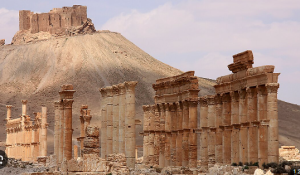
The Connection to Ancient Palmyra
The Palmyra Castle’s proximity to the archaeological site of Palmyra adds a layer of mystique to its stone-clad walls. The ruins of Palmyra, once a thriving city at the crossroads of ancient trade routes, serve as a backdrop to the castle, linking it to one of the most culturally and historically significant sites in the Middle East. The photographs of the castle, with the ancient city sprawling at its feet, underscore this deep connection, bridging centuries of history.
This linkage not only emphasizes the castle’s historical importance but also highlights its role in the preservation and appreciation of Palmyra’s ancient ruins. As a sentinel watching over the ruins, the castle reminds us of the enduring legacy of the civilizations that once flourished in this region.
In the face of conflict and the relentless march of time, the preservation of sites like Palmyra Castle is not just an act of conservation but a declaration of the enduring value of our shared past. By safeguarding these treasures, we honor the legacy of those who came before us and ensure that their stories continue to inspire and educate long into the future.
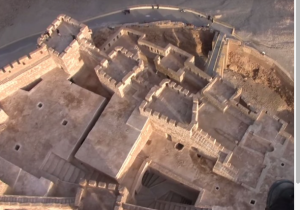
Preserving a Legacy Amidst Modern Challenges
The Palmyra Castle, much like the ancient city it overlooks, has faced modern challenges, including the threats of war and destruction. These challenges underscore the importance of preserving our global heritage, ensuring that future generations can learn from and be inspired by the marvels of the past.
Efforts to restore and protect such sites are more than acts of conservation; they are affirmations of our collective history and humanity. The images of the Palmyra Castle, standing resilient against the backdrop of time, serve as a powerful call to action to safeguard the stories and achievements of those who came before us.
In conclusion, the Palmyra Castle is not just a monument of stone and mortar; it is a beacon of history, culture, and resilience. As we explore its corridors and gaze out from its ramparts, we are reminded of the rich tapestry of human civilization that has unfolded across the Syrian desert. Preserving this legacy is a testament to our respect for the past and our hope for the future.
